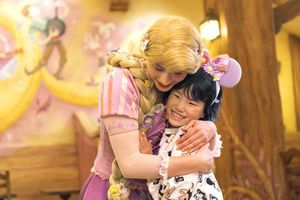Christine Angot, the acclaimed French writer known for her incisive prose, is making waves once again with her latest novel, La nuit sur commande. During her recent appearance on 'Quelle époque!' on March 15, 2025, Angot opened up about her time on the controversial television show, 'On n'est pas couché,' where she served as a columnist from September 2017 to June 2019.
Known for its confrontational style, 'On n'est pas couché' often places its guests under intense scrutiny, and Angot's experience was no exception. Reflecting on the pressures she faced on the show, she stated, “I would think to myself, 'What am I doing here?!'” as she awaited her turn on stage. These feelings of doubt and frustration are palpable throughout her latest work, highlighting the emotional complexity of her interactions on the show.
Angot did not hold back when discussing her reluctance to critique authors whose works she found uninspiring. “It was complicated for me, because I had no interest at all in criticizing people whose books I didn’t find interesting,” she admitted. This admission sheds light on the disconnect she felt during her time on the show, where entertainment often overshadowed genuine literary discourse.
Her new novel, La nuit sur commande, captures the essence of a night spent at the Bourse de Commerce de Paris with her daughter Léonore, which was inspired by a request from her publishing house. Despite its initial intention, her narrative took on another level with her spontaneous decision to leave the venue at 1:15 AM, driven purely by her desires rather than the expectations placed on her.
On the same episode of 'Quelle époque!', fellow guest Chantal Goya, the legendary French singer, recounted her own tumultuous television experiences. Goya spoke of her appearance on 'Le jeu de la vérité' back in 1985, where she encountered distressing moments witnessing another guest, Sophie Marceau, brought to tears. “I thought, 'No way should we be making budding artists cry like this on television!'” Goya expressed her outrage about the harsh questions directed at Marceau, such as whether she slept with producers to advance her career.
This sparked Goya’s critique of the entertainment industry's invasive nature, leading her to summon the courage to voice her feelings through media outlets. “They made me pay for it!” she remarked, reflecting her unfortunate experience after publicly condemning the show's format.
On 'Quelle époque!', with Léa Salamé at the helm, viewers were exposed to the stark realities of life within the entertainment industry, both from Angot and Goya. Although their experiences diverge, both women showcase the struggles and pressures faced when their art meets the public eye.
Angot's candidness has drawn discussions around authenticity and the burdens of creative expression within media spaces. With her latest work and these public recollections, she explores themes of identity and fulfillment beyond the blaring lights of television.
“I learned so many things during my time on 'On n'est pas couché',” Angot said, highlighting moments of camaraderie with her fellow guests and the joys of collaboration, which contradicts her earlier frustrations. She acknowledges the distractions of television yet cherishes the relationships formed behind the scenes, creating friendships within the backdrop of the chaos.
Both Angot and Goya's revelations provide insightful commentary on the nature of public life and artistic integrity. Their experiences urge the audience to reconsider the impacts of media portrayals on their emotional well-being and professional journeys.
With their careers spanning decades, Angot and Goya represent the resilience of artists who navigate complex media landscapes, often at the cost of their own peace of mind. Their voices shed light on larger conversations about the role of television and its responsibility to protect rather than exploit its subjects.
Their poignant stories resonate with many who have faced scrutiny and criticism, making Angot's appearance on 'Quelle époque!' not just another publicity event, but rather, a compelling discussion on the intersection of art and media perception. Viewers are left reflecting on the personal costs of fame and the cultural responsibility of platforms like 'On n'est pas couché'.





